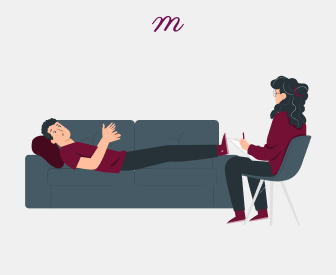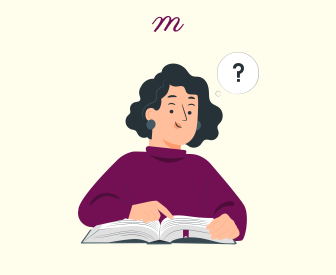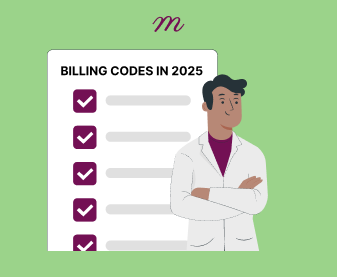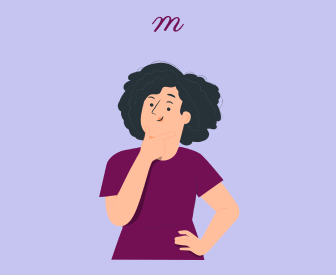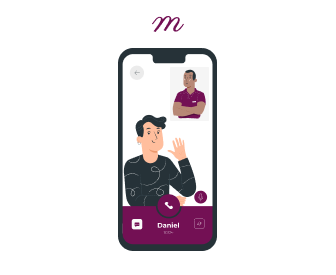Have your progress notes written for you automatically
Are you tired of feeling intimidated by the maze of complex CPT codes associated with psychiatry? Don't worry, you're not alone! Understanding psychiatry and CPT codes can be demanding. However, with our exclusive cheat sheet, you'll have everything you need to confidently navigate psychiatry's most common behavioral health codes, from diagnostic and evaluation codes to intake, outpatient mental health, and psychotherapy codes! In this post, you'll discover the secrets behind these codes, why they matter, and how to find them. Prepare to conquer the world of psychiatry CPT codes with ease and excitement!
Understanding CPT Codes for Psychiatry Providers
You must thoroughly understand the CPT code system if you are a psychiatrist. CPT, or Current Procedural Terminology, is a system developed by the American Medical Association (AMA) that provides a standard and consistent language for describing medical, surgical, and diagnostic procedures. These codes allow you to communicate your services to insurers and receive fair payment for your work. They also help establish medical necessity, track patient health over time, and produce diagnostic data for research.
Diagnostic Interview, Testing, and Evaluation CPT Codes
Diagnostic CPT codes are a crucial part of the medical billing process. To assess your patients' correct diagnostic and evaluation CPT codes, thoroughly review their medical and mental health histories. Select the code that most accurately reflects the level of care provided during each session.
Initial Diagnostic Interview
Initial diagnostic CPT codes assess a patient's mental state, history, and recommended treatment. Additionally, a second code is used if medical services were provided along with the psychological evaluation, such as prescribing medications, conducting physical exams, or modifying psychiatric treatment.
90791 (Psychiatric diagnostic evaluation without medical services)
90792 (Psychiatric diagnostic evaluation with medical services carried out by a physician)
Developmental and Behavioral Testing
Developmental and behavioral testing codes involve a quick evaluation of emotions and behavior using standard instruments like a depression inventory or ADHD scale. The code also includes the time spent scoring and documenting the results.
96127 (Use this code for each screening instrument completed)
Psychological and Neuropsychological Testing
A physician or qualified healthcare professional does a neurobehavioral status exam. This exam may include a clinical assessment of thinking, reasoning, and judgment, such as acquired knowledge, attention, language, memory, planning and problem-solving, and visual-spatial abilities.
96116 (This code covers one hour of testing and includes test interpretation and reporting)
96121 (Use this code for each additional hour of the neurobehavioral status exam)
Psychological Test Evaluation
A physician or qualified healthcare professional does psychological test evaluation. Evaluation can include interpreting standardized test results, clinical decision-making, integrating patient data, treatment planning, and providing feedback to the patient, family, or caregiver.
96130 (Use this for the first hour of testing)
96131 (Use this code for each additional hour; list it separately in addition to 96130)
Neuropsychological Test Evaluation
These codes cover a wide range of psychological tests such as IQ tests, achievement tests, personality tests, and vocational assessments. A physician or qualified healthcare professional must carry it out.
96132 (Use this for the first hour of evaluation)
96133 (Use this code for each additional hour of psychological test evaluation; list it separately in addition to 96132)
Outpatient Mental Health CPT Codes
Outpatient Mental Health CPT codes cover individual, family, and group therapy. These are the bread and butter of most mental health practices. The codes in this category describe the type of therapy, session length, and whether evaluation and management services were provided.
Individual Therapy
These are for insight-oriented, behavior-modifying, and supportive psychotherapy.
90832 (Psychotherapy, 16-37 minutes)
90833 (Psychotherapy and an evaluation and management service in the same session, 16-37 minutes)
90834 (Psychotherapy, 38-52 minutes)
90836 (Psychotherapy and an evaluation and management service in the same session, 38-52 minutes)
90837 (Psychotherapy, 53+ minutes)
90838 (Psychotherapy and an evaluation and management service in the same session, 53+ minutes)
Family Therapy
These codes can only be used when therapy focuses on the family unit. If you see family members together but the treatment primarily focuses on an individual, use the individual psychotherapy codes.
90846 (Family psychotherapy without the patient present, 50 minutes)
90847 (Family psychotherapy with the patient present, 50 minutes)
Group Therapy
These codes are used for group psychotherapy regardless of the number of patients in the group. You can only bill for one unit of 90853 per group session.
90849 (Group psychotherapy, most commonly used in family or couples sessions)
90853 (Group psychotherapy involving three or more patients, no more than twelve, and is often used for general psychotherapy groups)
Extender Codes for Longer Sessions
90833 (0-30 minutes longer; used with 90837)
99354 (30- 47 minutes longer; used with 90837)
99355 ( for each additional 30-minute period; used with 99354)
CPT Crisis Codes
90839 (Psychotherapy for crisis, 30-74 minutes)
90840 (Add on code for an additional 30 minutes, for 75+ minutes. Used in conjunction with 90839)
Evaluation and Management CPT Codes
These codes cover evaluating a patient's condition and adjusting medications as needed.
99201 (Office/outpatient visit, new patient, 10 minutes)
99202 (Office/outpatient visit, new patient, 20 minutes)
99203 (Office/outpatient visit, new patient, 30 minutes)
99204 (Office/outpatient visit, new patient, 45 minutes)
99205 (Office/outpatient visit, new patient, 60 minutes)
99211 (Office/outpatient visit, established patient, 5 minutes)
99212 (Office/outpatient visit, established patient, 10 minutes)
99213 (Office/outpatient visit, established patient, 15 minutes)
99214 (Office/outpatient visit, established patient, 25 minutes)
99215 (Office/outpatient visit, established patient, 40 minutes)
Conclusion
Navigating the complex world of psychiatry CPT codes doesn't have to overwhelm you. Armed with this cheat sheet of the most common behavioral health codes, you now have a handy reference to consult whenever you need to assign codes to your services. Finding and selecting the correct codes will make your billing processes smoother. The CPT manual may seem dense initially, but with some practice, you'll soon be unstoppable in pairing your psychiatry notes with the correct 5-digit CPT codes. Refer to this guide the next time you're scratching your head over how to code a service.
Also, if you need extra support, Mentalyc can turn your session recordings into completed progress notes with codes, giving you more time to focus on your clients. Try a free trial today!
FAQ: Psychiatry CPT Codes Questions Answered
What are the most common Psychiatry CPT codes?
The CPT codes you'll likely use the most in your practice are:
90833: Psychotherapy, 30 minutes with patient and/or family member
90834: Psychotherapy, 45 minutes with patient and/or family member
90837: Psychotherapy, 60 minutes with patient and/or family member
90853: Group psychotherapy
How often can I bill 90833, 90834, and 90837?
You can bill these codes for each separate session with a patient. For example, if you see a patient for 30 minutes on Monday and 45 minutes on Wednesday, you would bill 90833 for the first session and 90834 for the second session. The only limit is that you can't bill for two sessions on the same day.
What's the difference between 90833, 90834 and 90837?
These codes differ based on the length of the session:
90833: 30-minute session
90834: 45-minute session
90837: 60-minute session
Remember to choose the code that matches how long you spent providing psychotherapy or counseling to the patient during that session.
Do I need to worry about medical necessity for psychiatry CPT codes?
Yes, medical necessity is an essential concept for billing psychiatry CPT codes. Your services must be medically necessary to diagnose and treat a patient's behavioral health condition. You'll need to document how the patient meets the criteria for a diagnosis and how your treatment addresses specific symptoms. Medical necessity helps ensure insurance will cover and pay for the services.
Do I have to use CPT codes?
Yes, if you want to bill insurance. CPT codes are mandated by Medicare and adopted by all major insurance carriers.
How often do CPT codes change?
Annually, on January 1st. The AMA publishes an updated CPT manual each year.
What's the difference between CPT and ICD codes?
CPT codes refer to medical procedures and services. ICD codes refer to diagnoses and health conditions. Both are needed for billing.
Resources:
American Psychological Association. (2018, November 26). Home Practice Reimbursement CPT and Diagnostic Codes Psychotherapy Codes for Psychologists. APA Services. https://www.apaservices.org/practice/reimbursement/health-codes/psychotherapy
Centers for Medicare & Medicaid Services. (n.d.). Billing and Coding: Psychiatry and Psychology Service. https://www.cms.gov/medicare-coverage-database/view/article.aspx?articleId=57480
Dotson, P. (2013, December). CPT® Codes: What Are They, Why Are They Necessary, and How Are They Developed? PubMed Central. https://www.ncbi.nlm.nih.gov/pmc/articles/PMC3865623/#:~:text=Category%20I%20service%20and%20procedure,January%201st%20or%20July%201st
Grohol, J. M. (2022, March 30). CPT Codes for Psychotherapy and Other Psychology Services. Psych Central. https://psychcentral.com/lib/cpt-codes-for-psychology-services


